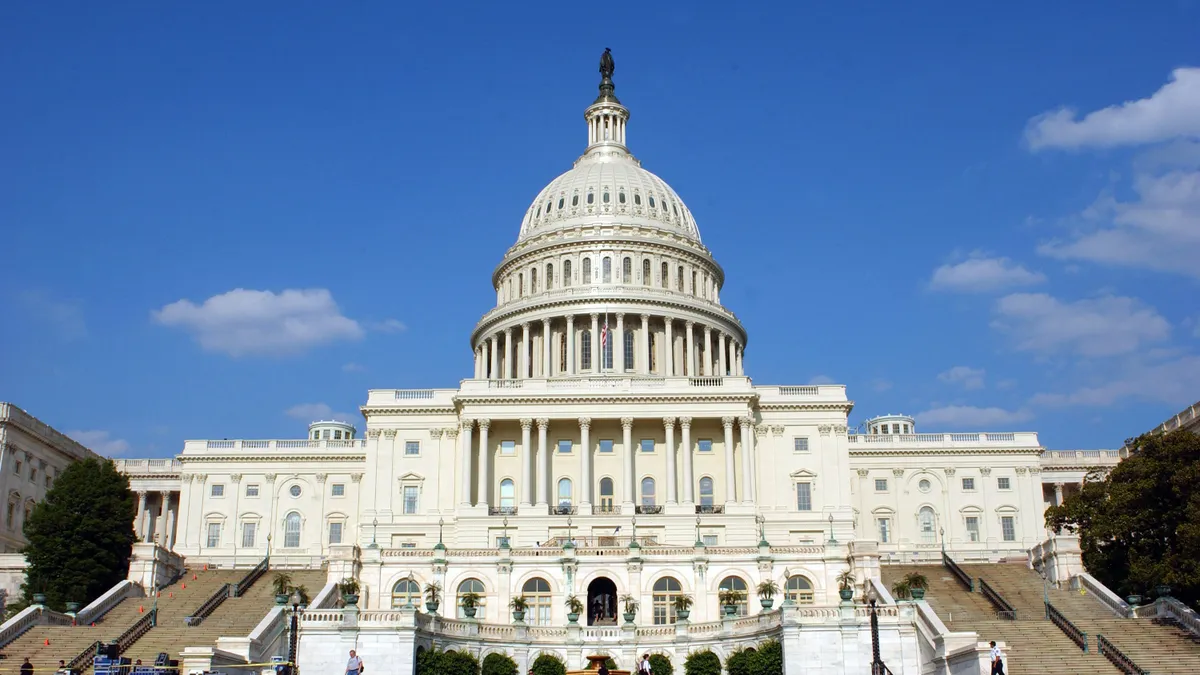Dive Brief:
- The Senate Committee on Health, Education, Labor and Pensions voted Tuesday to send a bill to the Senate that would reauthorize the Food and Drug Administration to collect user fees from device- and drug-makers for the next five years.
- A provision would require the FDA to finalize guidance that would create a category of over-the-counter hearing aids within a month of the bill’s passage. The FDA last issued a proposed guidance in October.
- Committee Ranking Member Sen. Richard Burr, R-N.C., questioned on Tuesday whether the FDA should have that expanded authority, despite co-sponsoring legislation that would change how diagnostic tests are regulated, including laboratory-developed tests.
Dive Insight:
The Senate version of the user fee bill passed the committee late Tuesday by a 13-9 vote.
The hearing aids provision was added to a draft of the bill in late May, as the FDA has delayed finalizing a rule establishing over-the-counter hearing aids. Congress passed legislation in 2017 that would allow adults to purchase them without an exam or fitting by an audiologist.
“I am incredibly frustrated it is taking FDA so long to take a step that will lower costs for millions of people across the country,” said Senate HELP Committee Chair Patty Murray, D-Wash.
Meanwhile, Burr stepped back on legislation he cosponsored that would clarify the FDA’s authority to regulate lab-developed tests, questioning whether the agency could be trusted with new responsibilities after its response to the infant formula shortage.
“We still have a long way to go on this bill before it becomes law. And I'll be watching the actions of FDA all the way to the end to see if they rise to the challenge and decide whether they deserve an ounce of new authority,” Burr said.
The proposed changes would create a new risk-based framework for regulating diagnostic tests, bringing in vitro diagnostic tests and laboratory-developed tests into a single category. However, it would also include broad exemptions for tests that were already marketed before the legislation goes into effect.
Sen. Tommy Tuberville, R-Ala., proposed an amendment that would exempt academic medical centers from the regulatory requirements, saying they would create “significant hurdles and unduly burdensome red tape for these medical centers.” However, both Murray and Burr voted to table it.
In a Tuesday statement, AdvaMed said it “strongly supports the underlying intent” of the new framework for diagnostic tests, referring to the Verifying Accurate Leading-edge IVCT Development (VALID) Act. “The committee rightly kept the long-awaited VALID Act intact amid attempts to weaken it.”
Several other amendments were added to the bill during Tuesday’s hearing. Some of them include:
- An amendment by Sen Jacky Rosen, D-Nev., would require the FDA to update its cybersecurity guidance within two years. This differs from a House version of the bill that includes more specific cybersecurity requirements for device manufacturers.
- An amendment by Sens. Mike Braun, R-Ind., and John Hickenlooper, D-Colo., would allow the FDA to implement predetermined change control plans for medical devices. This means device companies would include future changes to a device in a premarket submission and would be able to make those changes after approval without having to undergo additional FDA review.
- An amendment by Sen. Roger Marshall, R-Kan., that would aim to improve reporting of medical device safety issues by allowing the FDA to access emerging signals for postmarket device safety concerns.
As the bill goes to a Senate vote, it will have to be reconciled with the House version that passed last week, which includes many different, but not conflicting, provisions.










